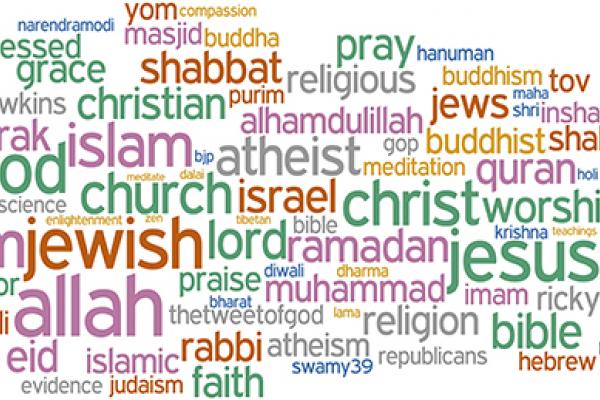What does a map of the U.S. religious landscape look like in 140 characters?
A new study of Twitter finds that self-identified religious users are more likely to tweet to members of their own faith than to members of a different one. The study examined people whose Twitter profiles identified them as Christian, Jewish, Muslim, Buddhist, Hindu and atheist.
And while adherents of all six groups studied tweet frequently, atheists — among the smallest populations in the U.S. — are the most prolific.
“On average, we can say the atheists have more friends, more followers, and they tweet more,” said Lu Chen, a doctoral candidate at the Kno.e.sis Center at Wright State University who co-authored the study with Adam Okulicz-Kozaryn of Rutgers University-Camden. They will present their findings in November at the sixth annual International Conference on Social Informatics.
Read the Full Article

